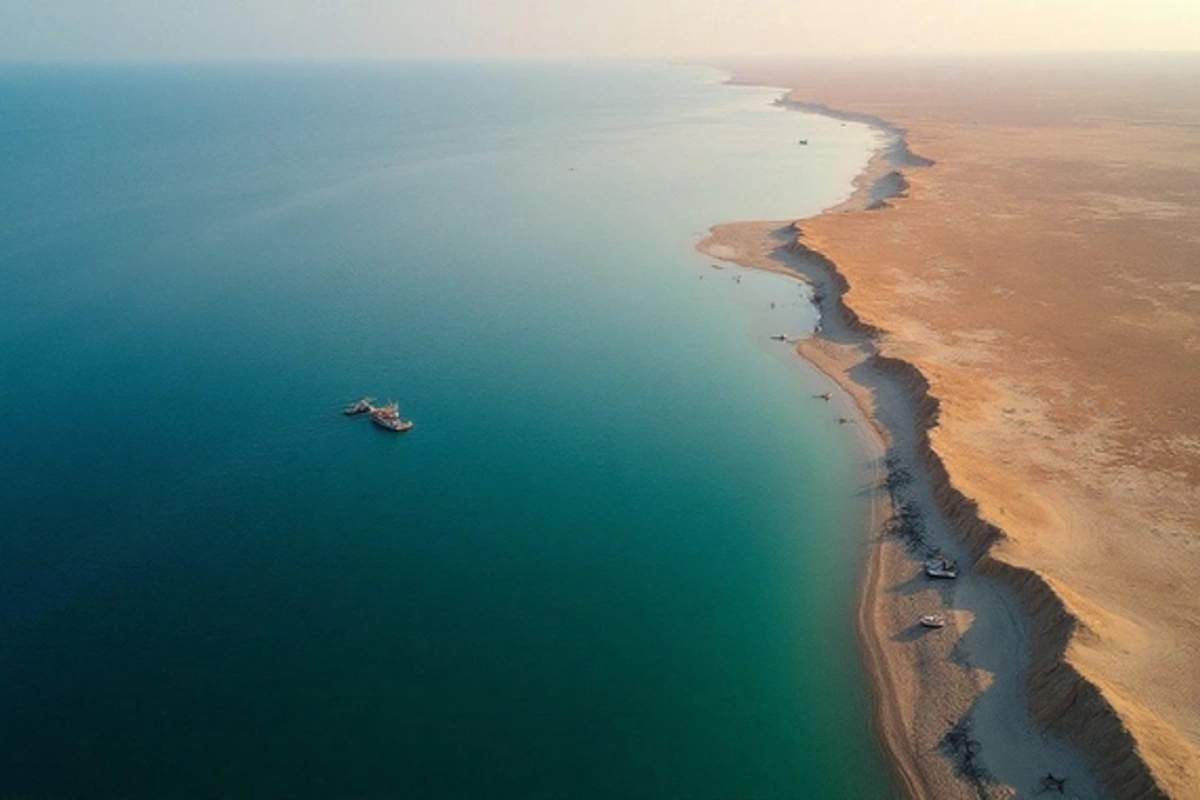23 May , 16:37
2

The Caspian Sea on the brink of ecological disaster: water level is rapidly falling
The largest enclosed body of water on the planet is experiencing a critical period. The level of the Caspian Sea continues to steadily decline, causing serious concern in the scientific community. Environmentalists are sounding the alarm: the consequences of this process affect not only the unique ecosystem but also the economic well-being of the Caspian states.
Global warming and evaporation
The key factor in the shallowing of the Caspian is global climate change. Record air temperatures are causing large-scale evaporation of the water surface. The situation is especially dramatic in the southern part of the sea, where under the influence of intensifying heat, water evaporates much faster than it comes in from river flows and precipitation.
Reduction of river flow
The Volga, which provides up to 80% of all water inflow to the Caspian Sea, has significantly reduced the volume of incoming water in recent years. This phenomenon is associated with both climatic transformations and active human economic activities – the construction of numerous reservoirs and dams that regulate and retain natural water flows.
Losses through Kara-Bogaz-Gol
The Kara-Bogaz-Gol bay in Turkmenistan makes a significant contribution to the shallowing. This natural "pump" annually takes significant volumes of Caspian water, which then intensively evaporates, exacerbating the overall problem of sea level decline.
Water from the Caspian Sea mainly leaves through evaporation and as a result of outflow to Kara-Bogaz-Gol. Since the Caspian has no access to the World Ocean, any water loss becomes critical, as the sea is unable to replenish them naturally through oceanic currents and tides.
Scientists disagree about whether the level of the Caspian Sea will recover. Some researchers believe that under favorable conditions, such as increased river flow and normalization of climatic factors, the level may stabilize or even begin to rise. However, it is impossible to predict exact timing or guarantee recovery due to the complexity and variability of natural processes.
The decline in the Caspian Sea level has large-scale ecological and economic consequences:
Environmental problems: Natural habitats of Caspian species are shrinking, particularly the unique Caspian seal and sturgeon fish, leading to ecosystem disruption.
Economic losses: The fishing industry suffers from changes in fish habitat conditions, the number of fish decreases, which affects industrial catches. Port infrastructure and shipping also face difficulties as waters recede, leaving port facilities out of reach for water transport.
The Caspian Sea today is at a crossroads. It is necessary to develop and implement comprehensive measures to preserve the water balance and minimize the negative impact of climate change. The future of this unique body of water and its adjacent regions depends on decisions made now.